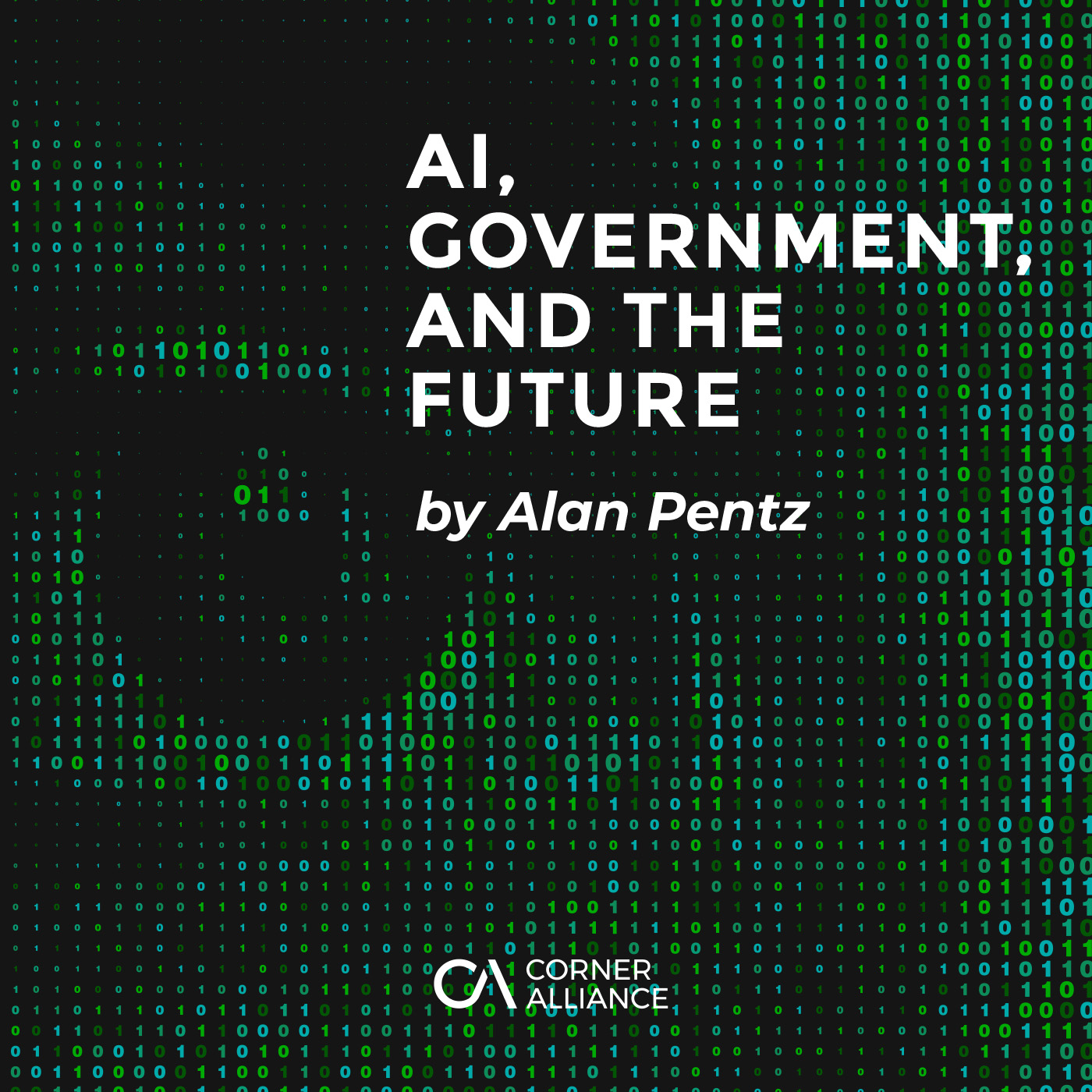Balancing AI Governance and Innovation with Erica Werneman Root of EWR Consulting
February 26, 2025

In this episode of AI, Government, and the Future, host Max Romanik is joined by Erica Werneman Root, Founder of EWR Consulting, to discuss the complex interplay between AI governance, regulation, and practical implementation. Drawing from her unique background in economics and law, Erica explores how organizations can navigate AI deployment while balancing innovation with responsible governance.
In this episode of AI, Government, and the Future, Erica Werneman Root shares her expertise on the practical challenges of implementing AI governance frameworks. Drawing from her background in economics and litigation, she offers unique insights into how organizations can effectively approach AI deployment and regulation.
The conversation explores the delicate balance between innovation and oversight, with Erica highlighting key differences between public and private sector approaches to AI implementation. She emphasizes how risk tolerance and accountability mechanisms need to vary based on context and use case.
Throughout the discussion, Erica provides valuable perspectives on AI literacy, systems thinking, and the importance of understanding both intended and unintended consequences of AI regulation. Her combination of economic theory and legal practice offers practical guidance for policymakers and practitioners navigating the complex landscape of AI governance.
If you enjoyed this episode, make sure to subscribe, rate, and review it on Apple Podcasts, Spotify, and YouTube Podcasts, instructions on how to do this are here.
Episode Highlights:
- 00:29 - From Litigation to AI Governance: Erica shares her professional evolution from litigation to AI governance, explaining how the field's terminology has evolved since 2015. She describes how early work focused on specific use cases like facial recognition and robotics before the umbrella term "AI" became common, providing context for how the industry's approach to governance has matured over time.
- 04:31 - Ethics, Regulation, and Governance Framework: The discussion delves into the relationship between ethics, regulation, and governance in AI development. Erica explains how these three elements interact, with ethics forming early frameworks before regulation, and how governance structures help organizations implement both effectively. She emphasizes that while ethics provided initial guidance, regulatory frameworks are now becoming more prominent in shaping AI development.
- 38:01 - Public vs Private Sector Risk Management: Erica outlines the fundamental differences in how public and private sectors should approach AI risk management. She argues for higher risk tolerance in the private sector where consumers have choice, contrasting with stricter controls needed in public sector applications where citizens often lack alternatives. This segment includes practical examples of how these different approaches manifest in real-world implementations.
- 47:53 - Automation Bias and Human Oversight: A critical examination of automation bias and the challenges of implementing effective human oversight in AI systems. Erica references research showing how even experienced pilots are less likely to override AI recommendations compared to manual checklists, highlighting the importance of understanding and accounting for human psychological factors in AI system design and implementation.
- 50:10 - Practical Policy Implementation Advice: Drawing from her economics background, Erica provides concrete advice for policymakers on managing AI implementation. She emphasizes the importance of considering unintended consequences, using real-world examples to illustrate how well-intentioned regulations can sometimes lead to unexpected negative outcomes. The discussion includes specific recommendations for creating more effective and resilient AI governance frameworks.
Episode Resources:
Tune in here:
- Apple - apple.co/46fxiAJ
- Spotify - spoti.fi/3Pphu7O
- bCast - bit.ly/3sVmlWP
Previous guests include: Jesse Anglen of Rapid Innovation, Maya Sherman of Embassy of Israel In India, Alex Wirth of Quorum, Mfon Apkan of Methodist University, Dr. Eva-Marie Muller-Stuler of Ernst & Young, and Christophe Foulon
Check out our Top 3 episodes:
- Harnessing AI for Social Good with Arnold Kling
- Leveraging AI for Public Policy Advocacy with Alex Wirth, Co-Founder and CEO of Quorum
- When Blockchain Meets AI with Jesse Anglen, Co-Founder and CEO of Rapid Innovation
If you are interested in joining AI, Government, and the Future as a guest, please complete this form: fame.so/cai-guest
AI, Government, and the Future is handcrafted by our friends over at: fame.so